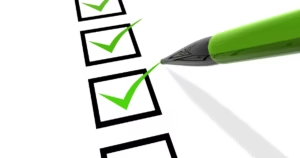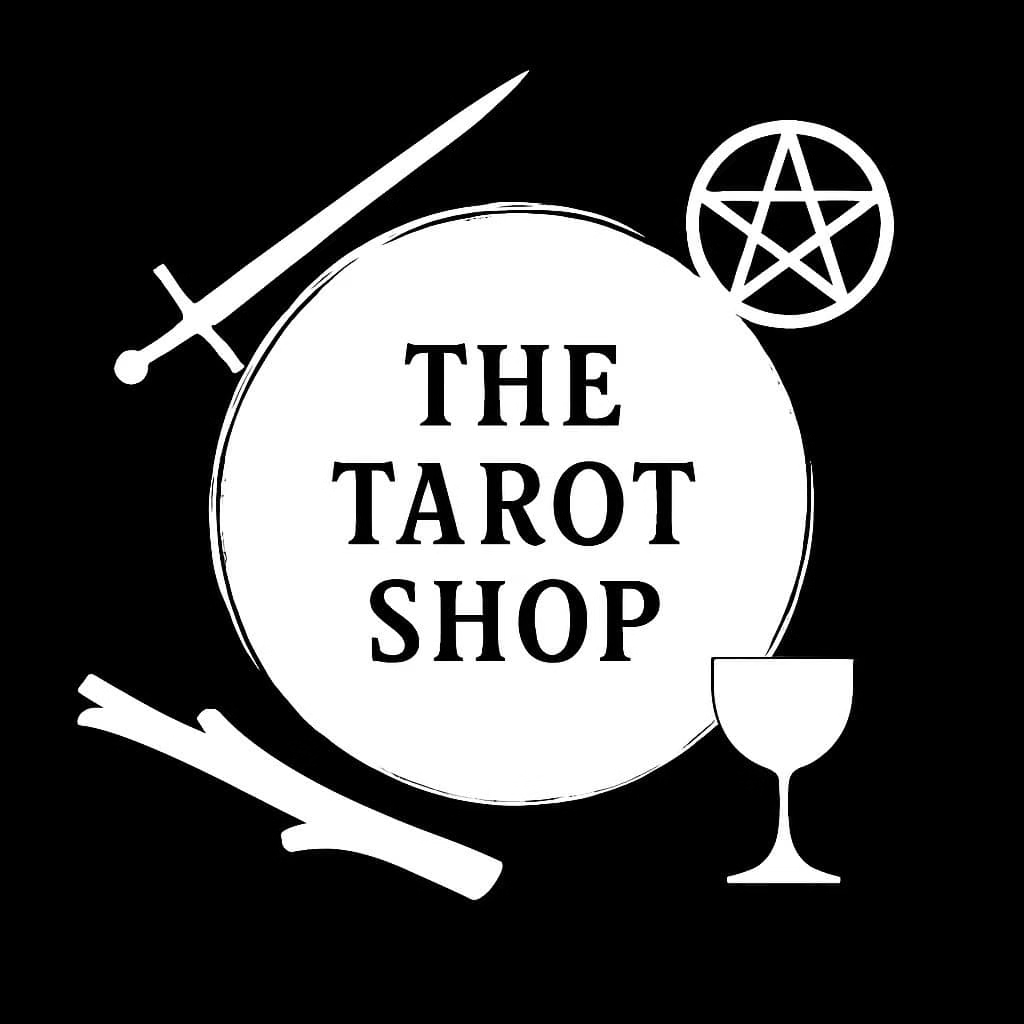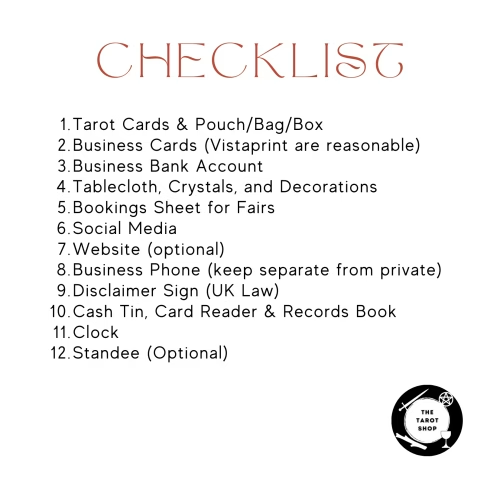Tarot Start-Up Checklist

Starting a tarot business can feel overwhelming — but it doesn’t have to be. This tarot business start-up checklist is exactly what I wish I’d had when I was first setting up.
It covers all the essentials you’ll need to read professionally — whether you’re working at fairs, offering private consultations, or building an online presence. If you’re wondering how much to charge, I cover that in a separate post: How Much to Charge for Tarot Readings.
1. Tarot Cards & Pouch/Bag/Box
Use a deck you know well. Now’s not the time to try something new. If you freeze mid-reading with a fresh deck, you’ll regret it. Stick to a deck you’re confident with — save experiments for personal practice.
2. Business Cards
Include:
Your name (real or stage)
A clear title (Tarot Reader, Psychic Intuitive, etc.)
A business number and email
Website or social handle (Facebook/Instagram)
Optional: your logo or tagline
Keep it simple, clean, and professional.
3. Business Bank Account
Not essential at first, but worth considering if you’re going full-time. At minimum, keep clear records of every transaction.
4. Tablecloth, Crystals & Setup
A plain cloth, velvet reading mat, and some personal touches (like crystals) help create a polished and sacred reading space. It also sets energetic boundaries — which clients pick up on instantly.
5. Booking Sheet for Events
Bring a printed sheet with half-hour slots, and block off time for a break. You’ll thank yourself later.
6. Social Media for Visibility
Start with a Facebook business page. It’s the easiest platform for reaching local clients and running affordable ads. Add photos of your setup and share client testimonials (with permission).
7. Simple Website
If you’re offering readings regularly, consider a small website with:
Your services and pricing
Contact information
A bit about you
Booking details or a contact form
Free builders like Wix or WordPress are perfect for beginners. YouTube tutorials can help you get started in under an hour.
8. Separate Business Phone
Use a second phone or number to separate personal life from bookings. It helps keep boundaries clear and lets you set voicemail expectations (e.g. “Readings take place weekends only, I’ll respond ASAP”).
9. Legal Disclaimer & Insurance
A framed disclaimer should be displayed clearly at all readings. This is a legal requirement in the UK.
Insurance is inexpensive and easy to set up — typically under £50/year for professional readers.
10. Card Reader, Cash Tin & Record Book
Bring a secure pouch or tin if taking cash. I recommend a SumUp card reader — it connects to your phone, takes minutes to set up, and makes you look professional.
Log every transaction in a simple spreadsheet:
Date
Client initials
Payment method
Amount
Expenses (if any)
Set aside 25% of income for taxes. You’ll need to complete a Self Assessment each January in the UK — even if you’re under the taxable threshold.
11. Clock or Timer
Keep a discreet clock nearby to manage time. You’ll likely run over when clients want more — keeping on schedule is part of staying professional.
12. Optional: Roller Banner or Standee
Not essential, but helpful if you’re attending multiple fairs. A simple standee makes you more visible and looks polished. Search for “roller banner” online to order one locally.

